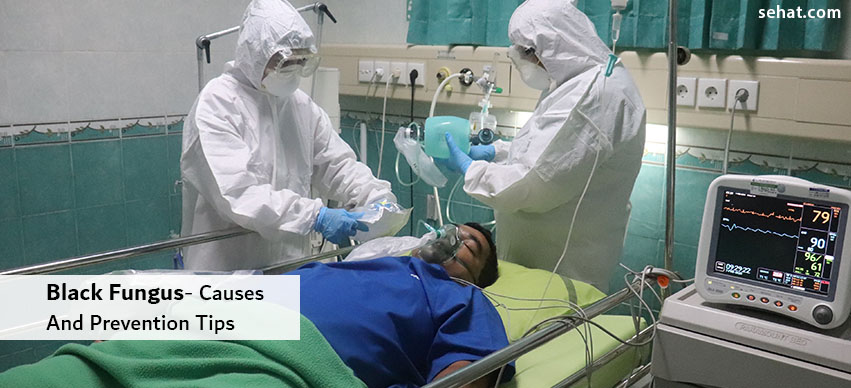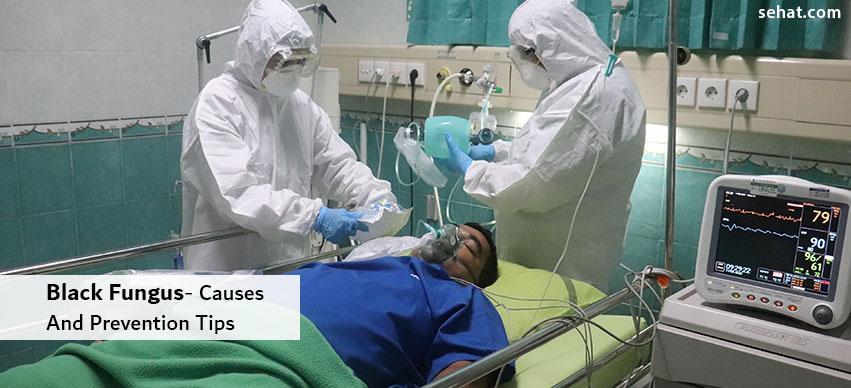Everyday Habits That Can Protect Your Eyes from Damage
4 Min Read


Black Fungus is a rare and dangerous infection otherwise known as Mucormycosis. So far it is noticed that this black fungus shows the impact on people who are suffering from covid-19 and also it affects the people who are suffering from low immunity system, HIV, Diabetes, and organ transplant patients. This is not any new virus and is already an existing one but increased cases have been witnessed due to the COVID situation. If this fungus is not detected and treated at the earliest it leads to loss of eye-sight.
The common source of this infection is spoiled bread, soil, damp walls on old buildings, etc; As the COVID cases are increasing very much it is recommended to follow the protocols while treating the patients.
Some other symptoms of black fungus are pain, warmth, excessive redness and swelling around wounds, excessive running nose, swollen eyes with pain, loss of eyelids, dark spots around the nose, etc.
[Also Read: Know the different types of headache and the causes]
The main cause of black fungus is due to Mucor. It affects the sinus, lungs, skin, and brain. It is also caused by inhalation of mold spores or making contact with things like soil, rotting produce or bread or compost piles, rotten fruits and vegetables, etc.
Black fungus is found almost everywhere and is also seen even in a healthy persons' mucus. Improper use of steroids is also one major cause of this infection. A large number of diabetic cases may also be one of the major reasons for the huge number of black fungus cases, as believed by experts.
People who are recovering from covid-19 have been affected by black fungus or mucormycosis. Black fungus is as mentioned not a new virus and is witnessed to have increased a lot during the recent COVID situation. COVID-19 or coronavirus makes the human body weak and at that time this black fungus easily enters into the human body worsening the condition of the patient.
Also, diabetics who are Corona positive are administered steroids and such people stand a very high chance of being infected with this black fungus. Even though this fungus is found in air, soil and even food but still they are of lower virulence causing no infection. Only very few cases are witnessed before this COVID pandemic. But due to this COVID, the number of patients being infected with black fungus is increasing.
This disease can be managed by controlling diabetes, discontinuing immunomodulating drugs. Medical treatment includes installing peripherally inserted central catheter, maintaining adequate systemic hydration, infusion of normal saline intravenously before Amphotericin B infusion, and antifungal therapy for at least six weeks besides monitoring the patient clinically with radio imaging. This fungus can be avoided by avoiding the prolonged use of steroids and by removing the fungus from the sinus by surgery.
By taking steroids at the right time and in the right dosage we can prevent black fungus in covid patients and in parallel control diabetes. Even if you have COVID ensure you don’t forget to have your medicines. Also actively observing the symptoms during the recovery period of COVID can help recognize black fungus disease at the earliest if infected. Another aspect of this fungus is to use steroids judiciously, steroids should not be prescribed lightly.
It’s suggested to wear masks when you’re in dusty areas. Be sure to wear shoes, long sleeve shirts, long trousers, gloves, etc thus covering your body to the most possible while getting in touch with soil or manure or moss. Go for a scrub bath and also maintain hygienic surroundings.
Black fungus or Mucormycosis cases are used to be very low in number. Black fungus in India is growing rapidly these days. It’s better to recognize and get rid of the Black fungus in the blood at the earliest before situations turn worse. You can get rid of this opportunistic infection by closely monitoring the severity of the disease and following the medication as prescribed by your medical practitioner.